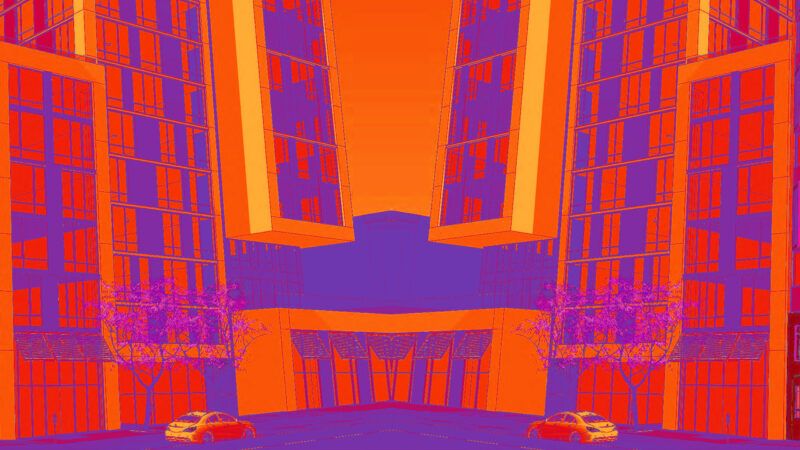These San Francisco Condo Dwellers Are NIMBY Hypocrites
Residents of a building that sailed through the city's approval process want to stop a building next door because it would shade a senior center, alter a "historic" gay bar

Residents of a San Francisco condo building that sailed through the city's planning process are now trying to prevent the approval of another apartment building next door, saying the new development would block their views, cast shadows on senior citizens, and threaten a historic gay bar.
At issue is developer 1525 Pine Street Dev LLC's proposal to build a 21-unit, 83-foot-tall mixed-use building with close to 3,000 square feet of commercial space in the city's Nob Hill neighborhood. The lot currently plays host to Grubstake, a longstanding gay bar that the developer is promising to incorporate into the new development.
Two of the proposed Pine Street development's units would be affordable studio apartments offered at below-market-rates to low-income renters.
The sponsors of the Pine Street project first applied for approval to build a 15-unit development in 2016. In October 2019, they submitted a revised application that made use of a state "density bonus" law which would allow them to build the 21 units they're now requesting.
Despite the inclusion of affordable units, and promises to preserve the Grubstake pub as an operating business, the Pine Street project has incensed residents of the adjacent Austin condo building, who argue that the height of the proposed Pine Street development would cast too many shadows, block views, and endanger the privacy of people next door.
The demolition of the original Grubstake building, they say, would also diminish the character of the Polk Gulch LGBTQ Historic District that covers the area.
In February, attorney David Cincotta, on behalf of several of these Austin residents, filed an appeal disputing a draft environmental report issued by the city's Planning Department which found that the project would have no adverse environmental impacts.
That appeal, as well as letters of opposition from individual neighbors, says further study of the project's possible impacts—including its effect on traffic volume, wind, shadow, and the neighborhood's historic character—are needed before the project can move forward.
The city's environmental report "must also consider the impact to frail seniors associated with the permanent loss of natural sunlight to windows at the Leland-Polk Senior Community," wrote one Austin resident in a letter to the city's Planning Commission. "Residents of this community rely on light from the north facing windows that will no longer be available due to the 1525 Pine Street Project."
"Grubstake has a lot of historic and LGTBQ significance which is at the core of why some of us bought homes in The Austin," wrote another project opponent. "I have reviewed the proposals for reusing some of the existing materials, but not having the restaurant there for [two] years changing its original shape as well as staff, will lose the frequent patronage that a lot of us were hoping to have as neighbors."
Last week, the city's Planning Commission—which controls the Planning Department—was supposed to vote on this appeal, but instead decided to delay considering it until early May.
The California Environmental Quality Act (CEQA) requires that projects like the proposed Pine Street development undergo environmental review before being approved by government agencies. Citizens are allowed to appeal environmental reviews if they think they were not thorough enough.
Should all those appeals fail, people are empowered under CEQA to sue to overturn the approval of a project.
The law is frequently used in San Francisco to delay or derail projects over some alleged environmental impact, whether that be the destruction of a "historic" laundromat or the excess shadow coverage of a nearby park.
One building that actually managed to avoid administrative appeals and lawsuits was the Austin, where most of the people objecting to the proposed project at 1525 Pine Street now live.
The Planning Department received no letters of opposition when that building—a 12-story tower that required the demolition of five buildings—was going through environmental review in the summer of 2014. The Planning Commission approved it unanimously in October of that year. It was ready to break ground by the end of 2015 and was completed in 2017.
Had nearby residents at the time engaged in the same kind of anti-development activism that some Austin residents are now, it's quite possible the building would still be a work in progress today. It might not even have been built at all.
Obviously, that would be bad for the current residents of the building. Yet those same residents appear eager to deny the next group of migrants to the neighborhood a home by gumming up the approval of the building next door.
Rent Free is a weekly newsletter from Christian Britschgi on urbanism and the fight for less regulation, more housing, more property rights, and more freedom in America's cities.


Show Comments (22)